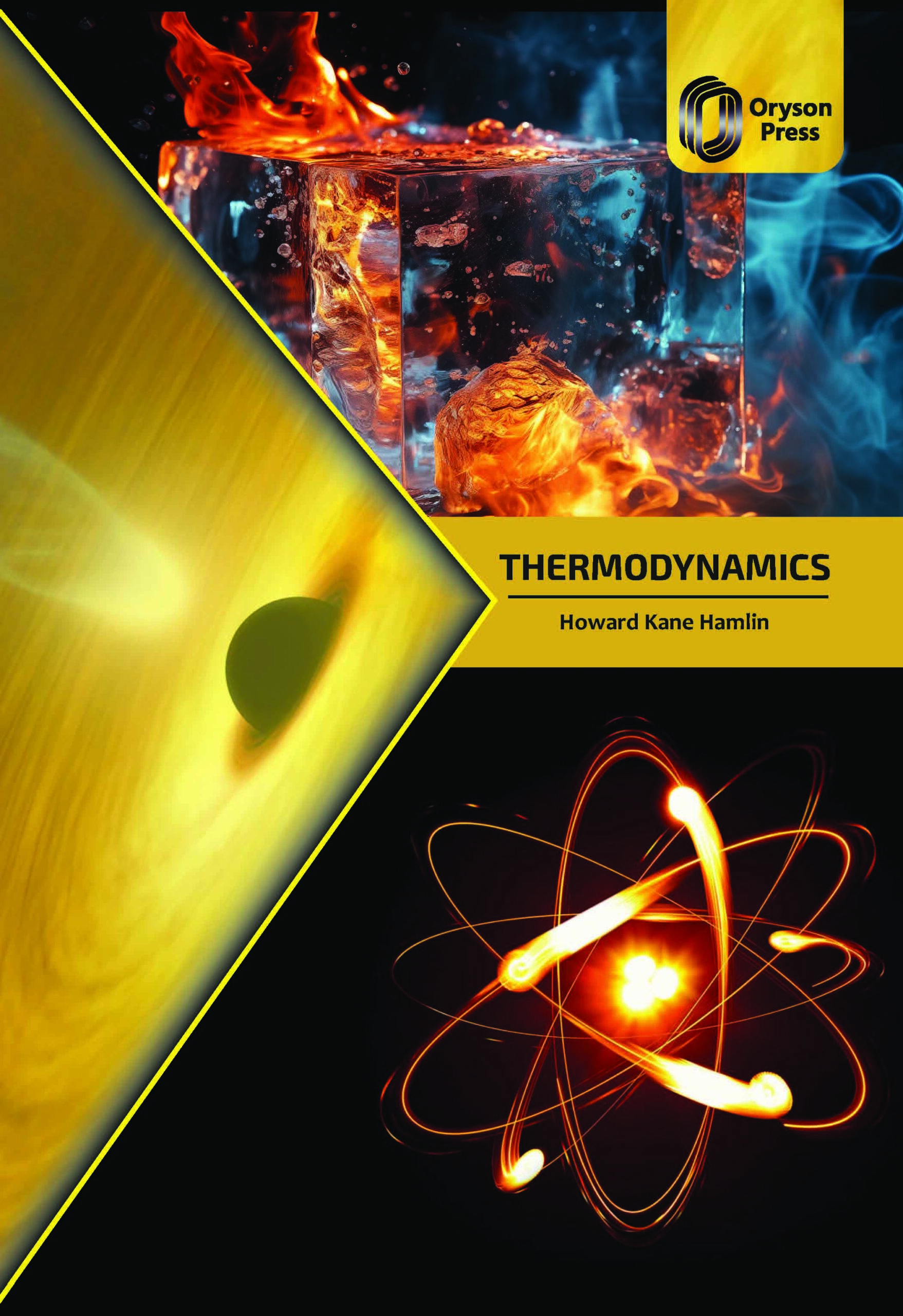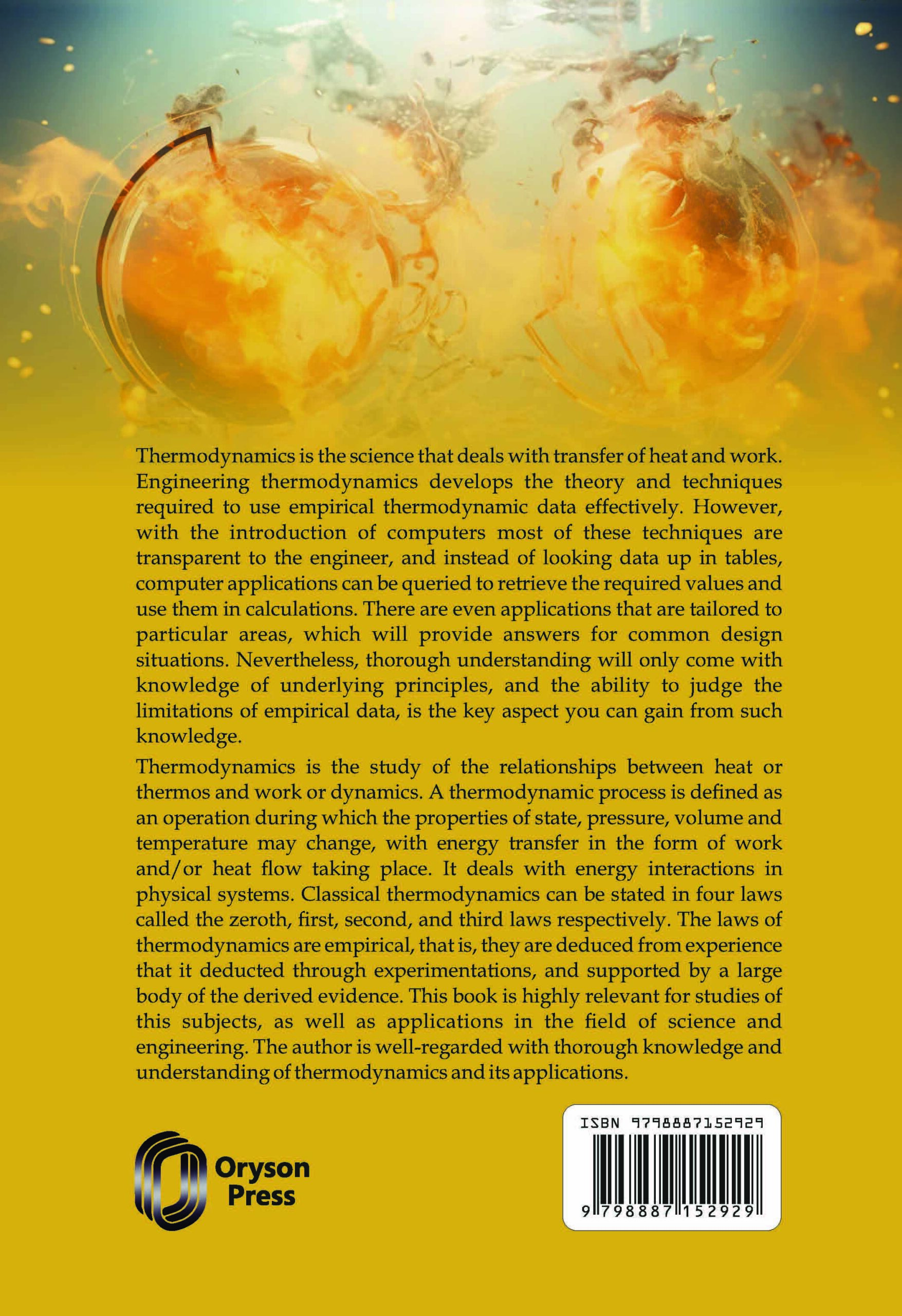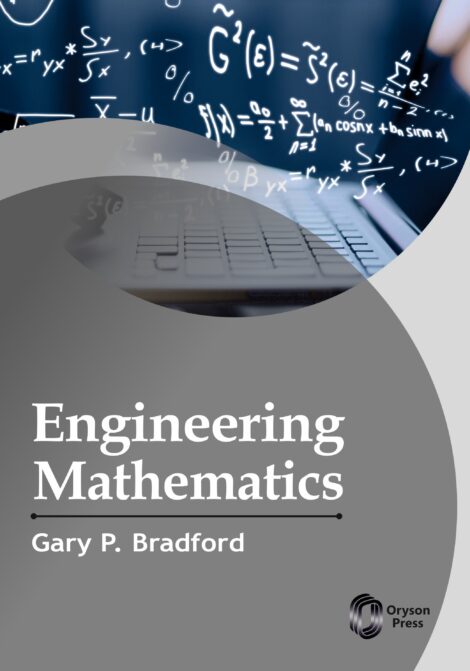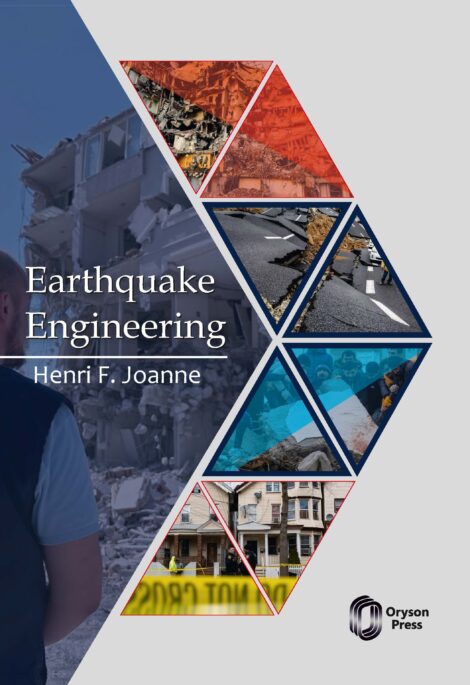Thermodynamics
Howard Kane Hamlin
$139.99
ISBN:9798887152929
Pages:308
Binding: Hardcover
Language: English
Description
Thermodynamics is the science that deals with transfer of heat and work. Engineering thermodynamics develops the theory and techniques required to use empirical thermodynamic data effectively. However, with the introduction of computers most of these techniques are transparent to the engineer, and instead of looking data up in tables, computer applications can be queried to retrieve the required values and use them in calculations. There are even applications that are tailored to particular areas, which will provide answers for common design situations. Nevertheless, thorough understanding will only come with knowledge of underlying principles, and the ability to judge the limitations of empirical data, is the key aspect you can gain from such knowledge.
Thermodynamics is the study of the relationships between heat or thermos and work or dynamics. A thermodynamic process is defined as an operation during which the properties of state, pressure, volume and temperature may change, with energy transfer in the form of work and/or heat flow taking place. It deals with energy interactions in physical systems. Classical thermodynamics can be stated in four laws called the zeroth, first, second, and third laws respectively. The laws of thermodynamics are empirical, that is, they are deduced from experience that it deducted through experimentations, and supported by a large body of the derived evidence. This book is highly relevant for studies of this subjects, as well as applications in the field of science and engineering. The author is well-regarded with thorough knowledge and understanding of thermodynamics and its applications.
Additional information
| Author | Karen F. Martin |
|---|---|
| ISBN | 9798887152912 |
| Year of Publication | 2025 |










